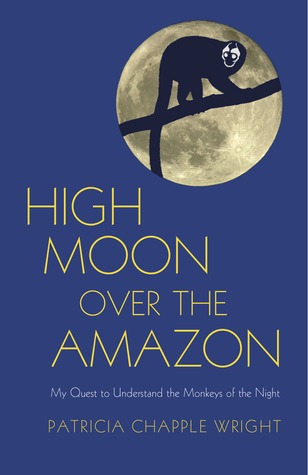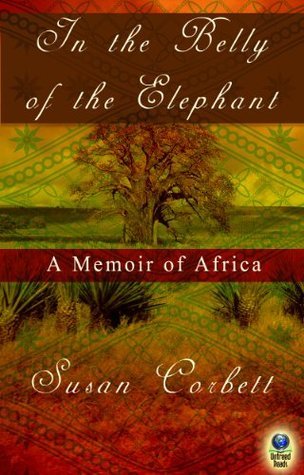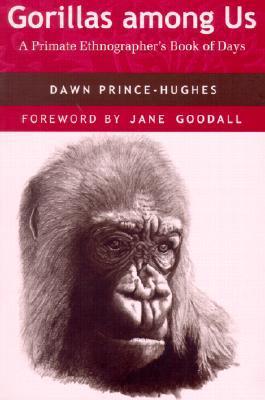
Bonobo Handshake: A Memoir of Love and Adventure in the Congo
Book Description
In the heart of the Congo, where the wild roars and humanity whispers, one woman’s quest intertwines love and adventure with the fate of the bonobos. Vanessa Woods plunges into a vibrant world filled with danger, hope, and breathtaking encounters as she uncovers the delicate balance of life and extinction. Through the eyes of extraordinary primates, she navigates her own turbulent relationships, challenging the boundaries of connection across species. As she battles against poachers and explores the depths of her own heart, will she find a way to bridge the divide between mankind and the mysteries of the wild?
Quick Book Summary
In "Bonobo Handshake," Vanessa Woods recounts her transformative experiences in the depths of the Congo as she studies bonobos, one of humanity's closest living relatives. The memoir weaves together scientific exploration, personal discovery, and the urgent struggle to protect an endangered species on the brink of extinction. Woods, alongside her scientist husband, grapples with the complexities and challenges of both their research and relationship, finding unlikely wisdom and comfort among the bonobos. As she navigates the perilous realities of conservation—facing political instability, poaching, and cultural misunderstandings—she draws parallels between bonobo societies and human connections. Ultimately, the story is one of hope, resilience, and the search for understanding across the boundaries of species, love, and survival.
Summary of Key Ideas
Table of Contents
Human-Animal Connection and Empathy
Vanessa Woods arrives in the Congo, embarking on a quest to study bonobos in their last natural refuge. Her initial encounters are a mixture of awe and trepidation as she meets these gentle, egalitarian primates known for their peaceful societies and matriarchal social structure. As Woods and her husband immerse themselves in daily routines of feeding, observing, and caring for the bonobos, she begins to draw powerful connections between the apes’ behavior and human dynamics, recognizing the threads of empathy, cooperation, and emotional complexity that bind all primates.
Conservation Amid Conflict
Living and researching in the Congo presents immense challenges—political instability, civil unrest, and the ever-present threat of poachers loom over daily life. Woods details the precarious existence of both the conservation team and the bonobos, revealing the delicate balance between hope and despair. She provides a candid glimpse into the realities of fieldwork, from logistical nightmares to witnessing firsthand the heart-wrenching effects of habitat destruction and violence. These external pressures force Woods to confront questions of human responsibility and the costs of indifference while highlighting the indomitable spirit of those fighting for the bonobos’ survival.
Scientific Discovery and Personal Growth
Scientific investigation is entwined with deep personal growth, as Woods navigates a tumultuous relationship with her husband. The Congo becomes both a crucible and a sanctuary, testing their commitment to each other as well as to the bonobos. Insights gained from observing bonobo social structures—where cooperation trumps aggression and affection eases conflict—guide Woods in her own journey of reconciliation, forgiveness, and emotional healing. The themes of vulnerability, connection, and resilience resound, as lessons from the wild shape her understanding of human love and partnership.
Resilience in the Face of Adversity
Amid danger and uncertainty, Woods discovers the transformative power of empathy and shared experience. The bonobo handshake, a simple gesture of trust and acceptance among apes, becomes a powerful metaphor for bridging divides. Woods witnesses miracles of recovery—injured and traumatized bonobos regaining trust, and fractured relationships rebuilding through patience and openness. In each story, there is hope: for healing, for understanding, and for the possibility of a world where compassion transcends the boundaries of species.
Love, Relationships, and Emotional Healing
Ultimately, "Bonobo Handshake" is more than a memoir of scientific adventure; it is a call to recognize the interconnectedness of all life. Woods’s narrative challenges us to reevaluate our relationship with nature and with each other. Through her poignant storytelling, she advocates for a world where empathy and cooperation shape both our policies and our personal lives, and where the fate of the bonobos serves as a mirror to our own capacity for kindness and survival.
Download This Summary
Get a free PDF of this summary instantly — no email required.





